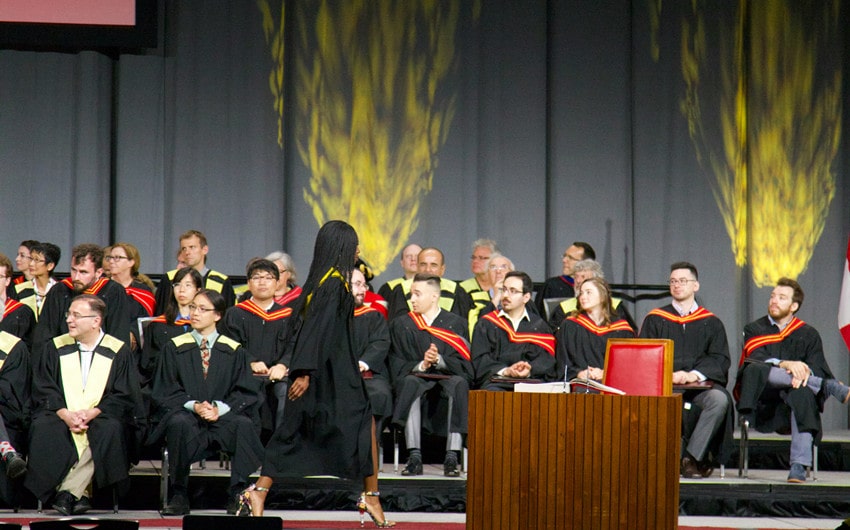Guests Often Ask: How Long Do Graduation Ceremonies Last?
Graduation day is a proud and emotional moment for students and families alike. From snapping photos to cheering during name calls, it’s a day full of memories—but also a bit of waiting. If you’re planning to attend or host one, you’ve probably wondered how long do graduation ceremonies last. The answer isn’t one-size-fits-all and depends on everything from the school level to the number of graduates.
Whether it’s your child’s 5th grade celebration or a university commencement, knowing what to expect can help you plan ahead, stay comfortable, and enjoy the milestone without checking your watch every five minutes.
Average Length of Graduation Ceremonies
While every graduation ceremony is unique, most follow a similar structure—welcoming remarks, speeches, the presentation of diplomas or certificates, and a closing segment. The length of the ceremony often depends on the number of graduates, the level of education, and how elaborate the event is. Here’s a general idea of what you can expect:
– Elementary School (Including 5th Grade)
Elementary school graduation ceremonies are typically the shortest, ranging from 30 minutes to 1 hour. These events are often informal, sometimes held in a school gym or auditorium. They may include student performances, short speeches from teachers or principals, and a fun slideshow or memory walk. Since attention spans are shorter at this age (for both kids and families), schools tend to keep things brief and sweet.
– Middle School / 8th Grade Promotions
Middle school or 8th grade promotion ceremonies are usually a little longer, lasting between 45 minutes and 1.5 hours. They often include multiple speakers, awards or recognitions, and music performances. These events mark the transition to high school, so there’s often a more reflective or motivational tone, but they still maintain a balance of formality and fun.
– High School Graduations
High school graduations tend to be more formal and are often held in larger venues like school fields, arenas, or theaters. The average high school ceremony lasts 1.5 to 2.5 hours, though larger graduating classes or elaborate programs can stretch the event to nearly three hours. Expect a processional, speeches from valedictorians and administrators, and each graduate’s name called one by one. These can be emotional, exciting, and occasionally long-winded—so guests should come prepared.
– College and University Commencements
College graduations can vary widely, depending on whether it’s a school-wide ceremony or a smaller departmental one. Full commencement ceremonies may last 2 to 4 hours, particularly at large universities with thousands of graduates. In many cases, colleges break the celebration into multiple events: a big general commencement with keynote speakers and smaller, more personal ceremonies for individual majors or departments, which are typically 1 to 2 hours long.
Summary Table: Average Ceremony Length by School Type
| School Level | Average Duration |
| Elementary (e.g. 5th Grade) | 30 minutes – 1 hour |
| Middle School (8th Grade) | 45 minutes – 1.5 hours |
| High School | 1.5 – 2.5 hours (up to 3) |
| College / University | 2 – 4 hours (varies) |
Understanding these general time frames can help families make plans—especially if you’re juggling multiple guests, travel, or even weather. Of course, the actual length might still surprise you, but at least you’ll have a ballpark idea going in.

What Makes Ceremonies Longer or Shorter
Not all graduation ceremonies are created equal. Some wrap up before your coffee gets cold, while others feel like a full-day event. If you’ve ever wondered why one school’s ceremony breezes by and another seems to go on forever, several factors come into play. Knowing what contributes to the length can help you set expectations—and plan accordingly.
1. Number of Graduates
This is one of the biggest time factors. The more students crossing the stage, the longer the ceremony. If each student takes just 10–15 seconds to walk, shake hands, and receive their diploma, that adds up quickly. A small elementary school with 40 students might finish in under an hour, while a high school with 600 seniors could easily push past two hours.
2. Number and Length of Speeches
Graduation ceremonies usually feature a lineup of speakers: principals, valedictorians, guest speakers, board members, and even student council reps. Each of them may take anywhere from 2 to 15 minutes—or longer. Some schools keep speeches short and sweet; others allow for longer inspirational talks, especially at high school and college levels. Multiple speeches can add 30 minutes or more to the ceremony.
3. Special Performances or Presentations
Musical numbers, choir performances, slideshow presentations, award announcements, or recognition segments for teachers and staff are all common elements—especially in elementary and middle school ceremonies. While these moments add heart and entertainment, they also add time. A musical performance here and a video montage there can stretch things out by an extra 15–30 minutes.
4. Venue Size and Seating Logistics
Larger venues—like stadiums, arenas, or large auditoriums—can require more time simply for seating guests and organizing graduates. It might take 15 minutes just for everyone to get inside and seated. Exit time can also be longer if the venue has tight bottlenecks. Smaller venues, on the other hand, tend to move things along more efficiently.
5. How Names Are Read
Reading every graduate’s name individually can be one of the most time-consuming parts of the ceremony. Some schools speed this up with quick name-calling, limited pauses, or even scrolling names on screens. Others make it more ceremonial—allowing applause after each name or pausing for photo ops—which can significantly increase the total length. The pace and format of this segment can add or subtract a full hour, especially in larger graduating classes.
6. Formal vs. Casual Ceremony Style
Some schools go all out with academic processions, full cap-and-gown attire, elaborate stage design, and formal music. These events follow a structured timeline and are often more traditional—meaning they can run longer. Others opt for a casual or themed celebration (especially at the elementary level), with a more relaxed schedule and quicker flow.
7. Technical Issues and Delays
Let’s be honest—things don’t always go smoothly. A mic that won’t turn on, a slide that won’t load, or a speaker who goes off-script can delay the program. Outdoor events might also be affected by weather delays. While schools plan carefully, unexpected hiccups can extend the ceremony beyond the scheduled time.
8. Combined or Separate Ceremonies
Some schools combine multiple grades or departments into one big ceremony. For example, a university may hold one large commencement for all graduates, while others break it down by college or major. A combined ceremony typically lasts longer due to the larger crowd and more comprehensive program.
9. Audience Etiquette and Applause
Believe it or not, how the audience behaves can make a difference. If the audience cheers or claps for each graduate (especially in high school or college settings), this can significantly extend the timeline. Some schools ask for applause only at the end of each section or after the final graduate to keep things moving, but enforcement varies.

Tips for Guests and Families
Attending a graduation ceremony—whether for a child, sibling, grandchild, or friend—is a meaningful experience. But long waits, large crowds, and sometimes unpredictable conditions can make the day feel overwhelming if you’re unprepared. These practical tips will help families and guests stay comfortable, respectful, and ready to celebrate.
1. Arrive Early (But Not Too Early)
Graduation seating is often first-come, first-served—especially in schools with large families attending. Arriving 30–60 minutes early is usually a safe bet to find good seats, especially if you’re attending with a group or need accessible seating. That said, check the school’s guidelines first. Some venues open their doors at a specific time and don’t allow early arrivals to linger outside.
2. Check the Dress Code
While there’s usually no strict dress code for guests, dressing in smart casual or semi-formal attire is always a safe choice. You’ll want to look nice for photos but still be comfortable, especially if the ceremony is outdoors or involves a lot of walking. Bring a jacket or sweater for air-conditioned auditoriums or if the weather might cool down.
3. Bring Essentials (But Travel Light)
Consider bringing these items:
- Programs or printouts (if not provided digitally)
- Tissues (for those proud tears)
- Water bottle (if allowed)
- Phone or camera (charged and ready)
Avoid bringing large bags, gifts, or balloons into the ceremony—they can block views and aren’t always permitted.
4. Be Prepared for Downtime
Ceremonies can include long stretches of sitting while names are read, speeches are delivered, or performances take place. If you’re bringing children or younger siblings, pack quiet activities (coloring books, snacks, or small toys) to keep them occupied without distracting others.
5. Know When It’s Okay to Clap or Cheer
Each school has its own etiquette when it comes to applauding graduates. Some allow cheering after every name is called; others request applause only at the end to keep things moving. Listen carefully to the announcer’s instructions at the start of the event—and follow them to show respect for all graduates.
6. Be Respectful of the Moment
Graduations are important milestones, and everyone deserves their moment in the spotlight. Avoid standing in aisles for photos, talking during speeches, or leaving early if it can be helped. If you must step out for any reason, do so quietly and try to return during a break in the ceremony.
7. Understand the Weather Plan
If the ceremony is held outdoors, check the forecast and prepare accordingly. Sunscreen, sunglasses, hats, and handheld fans can make a big difference on a hot day. Likewise, pack an umbrella or poncho if there’s a chance of rain. Many schools have backup indoor venues or delay plans, so be sure to read the school’s weather contingency notice ahead of time.
8. Parking Can Be Tricky—Plan Ahead
Parking lots fill up fast at graduations. Some schools or venues offer shuttles, overflow lots, or designated areas for elderly or disabled guests. Map your route in advance, arrive early, and consider carpooling to avoid parking headaches.
9. Hold Off on Giving Gifts at the Ceremony
While it’s traditional to give graduates cards, leis, flowers, or small gifts, the ceremony itself may not be the best time. Large gifts or bouquets can block views or create clutter. Save gift-giving for the post-ceremony celebration or photo session so everyone can focus on the event itself.
10. Plan for Post-Ceremony Meetups
With large crowds and lots of students, it can be surprisingly tricky to find your graduate after the ceremony. Agree on a meeting spot ahead of time, especially in big venues or stadiums. This prevents confusion and lets you jump into the photo ops and hugs more quickly.
Virtual and Hybrid Graduations
In recent years, schools have become increasingly creative with how they celebrate graduations—especially when in-person gatherings aren’t possible or need to be limited. Virtual and hybrid graduations have emerged as flexible alternatives, offering meaningful ways to honor students while accommodating different needs and situations. These formats became especially popular during the pandemic but continue to be used for convenience, accessibility, and safety.
What Is a Virtual Graduation Ceremony?
A virtual graduation is a fully online event where graduates, families, and faculty participate remotely. These ceremonies are usually pre-recorded or live-streamed and hosted on platforms like YouTube, Zoom, or a school’s website. Speeches, award recognitions, and student name announcements are often recorded in advance or presented via slideshow or voiceover.
Most virtual ceremonies last 30 minutes to 1 hour, depending on how much content is included. Without the physical logistics of seating, walking across a stage, or organizing large groups, the process moves more quickly—but it still offers emotional moments, inspiring words, and chances for families to cheer from home.
What Is a Hybrid Graduation Ceremony?
A hybrid graduation combines in-person and virtual elements. For example:
- The ceremony may be live-streamed for families who can’t attend in person.
- Some students may attend on-site, while others participate remotely.
- Schools might hold multiple small ceremonies and combine them into a single online video presentation.
Hybrid events are especially helpful when schools have limited venue capacity, health concerns, or students spread across regions. They also allow international family members to join the celebration from afar.
Depending on the structure, hybrid ceremonies can last from 45 minutes to 2 hours. Schools may pre-record some parts and present others live, offering a balance of tradition and convenience.
Pros of Virtual and Hybrid Ceremonies
- Greater Accessibility – Friends and family from anywhere can join in without needing to travel.
- Time-Efficient – These ceremonies tend to be shorter and more streamlined.
- Flexible Viewing – Many are recorded and available to watch later at any time.
- Creative Customization – Schools can incorporate photos, personal videos, music, and digital backdrops to make each moment feel special.
- Less Stress – No concerns about traffic, seating, weather, or last-minute wardrobe malfunctions.
Challenges to Keep in Mind
- Technical Issues – Internet glitches, audio problems, or delays in live streams can affect the experience.
- Less In-Person Energy – Virtual events can lack the excitement of clapping crowds and in-person hugs.
- Limited Photo Ops – Students miss out on traditional stage walks, diploma handshakes, and group photos unless done separately.
Tips for Making the Most of a Virtual or Hybrid Graduation
- Set Up a Celebration Space at Home – Decorate a room with balloons, banners, or school colors to make it festive.
- Dress the Part – Encourage your graduate to wear their cap and gown or dress up as if it’s in person.
- Watch With Family – Even if it’s virtual, make it feel like a big event with snacks, cheers, and a family watch party.
- Take Your Own Photos and Videos – Capture the moment from home and create your own highlight reel.
- Share on Social Media – Post graduation announcements, screenshots, or personalized messages to celebrate online.






